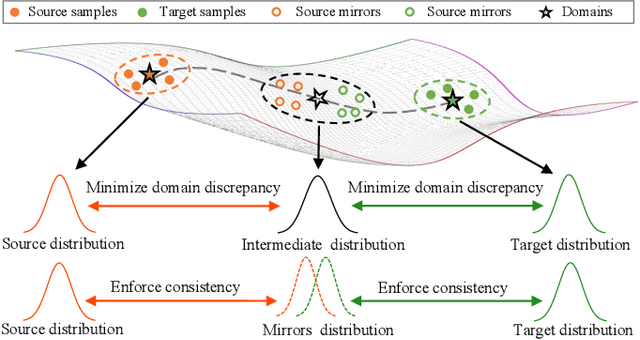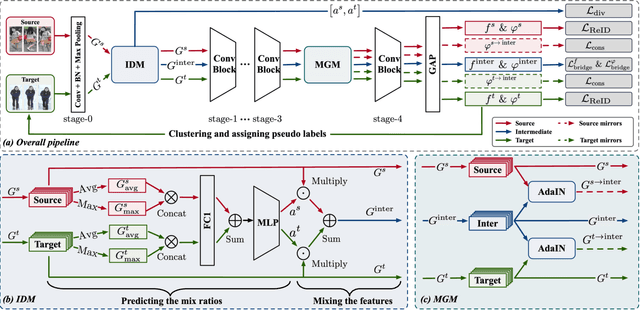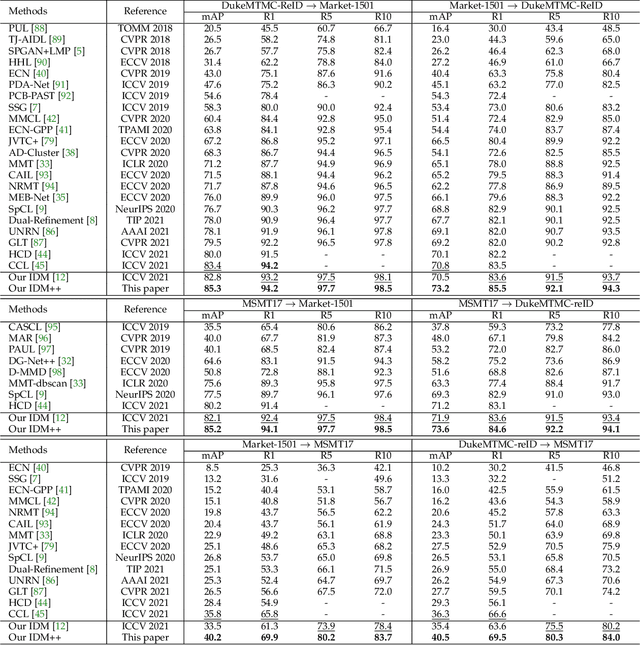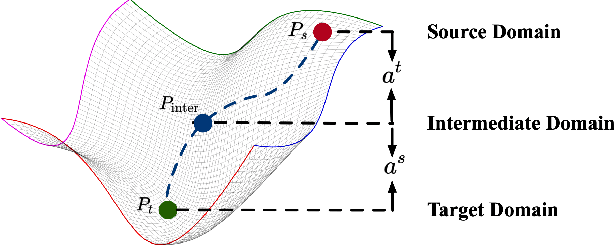Bridging the Source-to-target Gap for Cross-domain Person Re-Identification with Intermediate Domains
Paper and Code
Mar 03, 2022



Cross-domain person re-identification (re-ID), such as unsupervised domain adaptive (UDA) re-ID, aims to transfer the identity-discriminative knowledge from the source to the target domain. Existing methods commonly consider the source and target domains are isolated from each other, i.e., no intermediate status is modeled between both domains. Directly transferring the knowledge between two isolated domains can be very difficult, especially when the domain gap is large. From a novel perspective, we assume these two domains are not completely isolated, but can be connected through intermediate domains. Instead of directly aligning the source and target domains against each other, we propose to align the source and target domains against their intermediate domains for a smooth knowledge transfer. To discover and utilize these intermediate domains, we propose an Intermediate Domain Module (IDM) and a Mirrors Generation Module (MGM). IDM has two functions: 1) it generates multiple intermediate domains by mixing the hidden-layer features from source and target domains and 2) it dynamically reduces the domain gap between the source / target domain features and the intermediate domain features. While IDM achieves good domain alignment, it introduces a side effect, i.e., the mix-up operation may mix the identities into a new identity and lose the original identities. To compensate this, MGM is introduced by mapping the features into the IDM-generated intermediate domains without changing their original identity. It allows to focus on minimizing domain variations to promote the alignment between the source / target domain and intermediate domains, which reinforces IDM into IDM++. We extensively evaluate our method under both the UDA and domain generalization (DG) scenarios and observe that IDM++ yields consistent performance improvement for cross-domain re-ID, achieving new state of the art.
 Add to Chrome
Add to Chrome Add to Firefox
Add to Firefox Add to Edge
Add to Edge